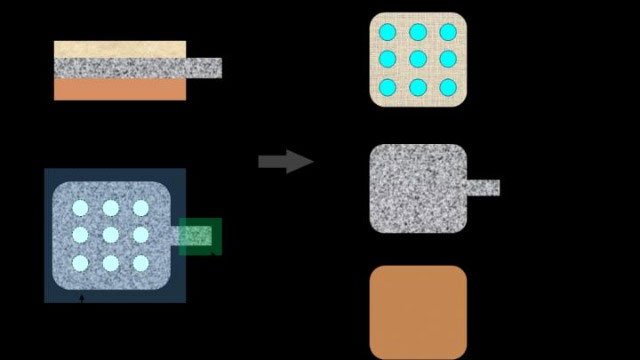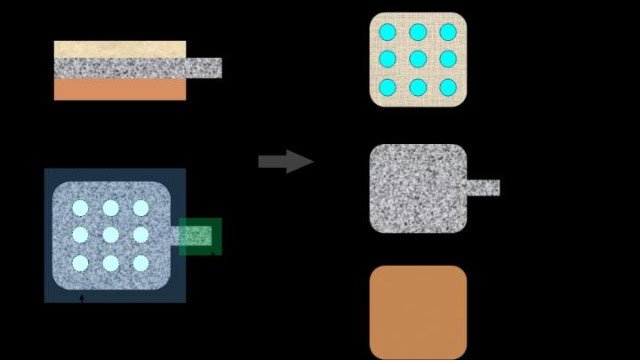Rapid diagnostic test kit for bacteria made of ... paper
Researchers have built a device to help diagnose the group of bacteria that cause infections and find the right treatment faster than lab methods that take days.
According to a study published by the University of Southampton in the UK on February 25, researchers have developed a paper-making device that can help doctors quickly diagnose groups of bacteria that cause infections and find ways to treat them. exact value. As a result, the time will be much faster than the lab test.

Photos posted on the University of Southampton website simulating new instruments - (Screenshot).
This new tool is made of paper, a total of 3 layers. The top layer contains 4 common antibiotics (Amoxicillin, Ciprofloxacin, Gentamicin and Nitrofurantoin) at 4 right angles of the device. In the middle is litmus paper. The final layer is transparent gel. The researchers used the laser to squeeze these three layers together.
This device works like a pregnancy test. By simply pouring a sample of test liquid - such as a patient's urine - into this small device, doctors can soon identify the type of bacteria in the sample by discoloration at the corner of the antibiotic paper. .
From this, the doctor can determine which of the 4 antibiotics above would be suitable for treatment. If the results are not relevant, conclude that this case can not be treated with all 4 antibiotics.

Image showing E Coli bacteria test result - (Screenshot).
"This device can help reduce unnecessary antibiotic prescribing to patients and reduce the threat of the growing prevalence of antibiotic resistance" - Dr Collin Sones from Southampton University, team leader research, said.
The research was published in the scientific journal Biosensors and Bioelectronics on February 25. In the past, conventional laboratory testing could take up to 4 days to get results.
In an article posted on the University of Southampton website titled, "Testing for non-laboratory infections can eliminate the guesswork for doctors," the university said the new technology has potential. Cheap and easy to use when manufacturing.
- Coming soon to home HIV testing equipment
- Developed the H7N9 virus rapid test kit
- Smart paper guessing disease
- Quick diagnostic tool for HIV / AIDS within 30 minutes.
- Rapid detection of cancer with test strips
- £ 10 million for anyone to find a solution against antibiotic resistance
- HIV diagnostic kit in just 15 minutes
- Introducing a quick diagnostic tool for Ebola virus
- New technique to diagnose malaria
- There are at least 17 types of harmful bacteria on clean paper towels
- Up to 3000 different bacteria live on paper money
- If the HIV test is cut, it will falsify the test result
- Vietnam produces paper sticks that identify TB bacteria on people
- Singapore: Production of rapid detection H5N1
 The US company is about to build a supersonic passenger plane of 6,000km / h
The US company is about to build a supersonic passenger plane of 6,000km / h Japan develops avatar robot as in fiction film
Japan develops avatar robot as in fiction film Australia tested the world's first mango picking robot
Australia tested the world's first mango picking robot America develops technology to separate water from animal waste
America develops technology to separate water from animal waste